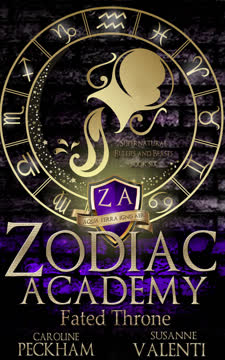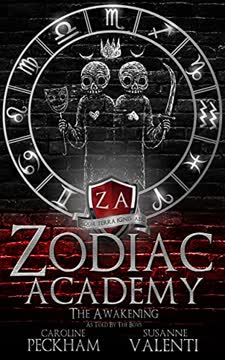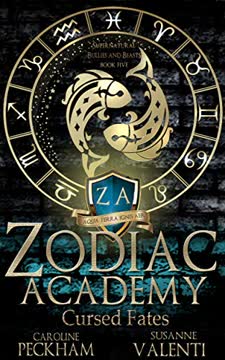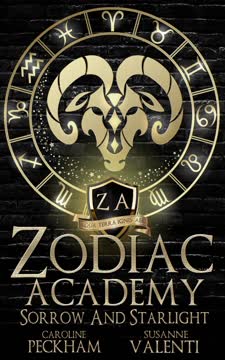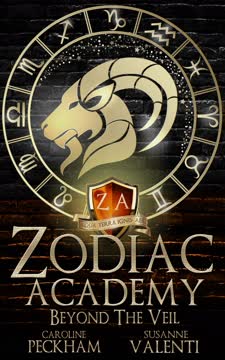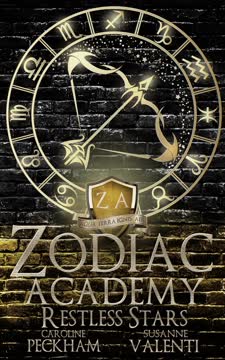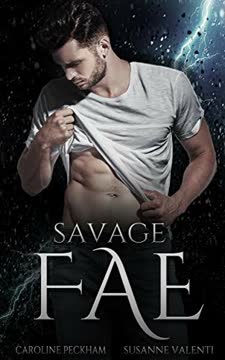Plot Summary
1. Shadows and Sacrifice
The story opens with the Vega twins, Tory and Darcy, and their allies fighting to survive in a world ruled by Lionel Acrux, a tyrant king wielding the forbidden power of the shadows. Tory is held captive by Lionel, her mind and will twisted by the shadows and a forced Guardian bond, while Darcy and the Heirs (Darius, Caleb, Max, Seth) desperately search for a way to save her. The cost of resistance is high: pain, betrayal, and the constant threat of death. The shadows are not just a weapon—they are a curse that infects the soul, demanding sacrifice from all who touch them.
2. The Heirs' Rebellion
The Heirs, once rivals, now stand united with the Vega twins against Lionel's regime. Their friendship is tested as they break the law, hunt Nymphs, and risk everything to undermine the king's power. The rebellion is not just a matter of politics but of survival, as the group must outwit Lionel's spies, survive deadly magical trials, and protect each other from the darkness within and without. The bonds between them deepen, and their loyalty is proven in blood and fire.
3. Cursed Bonds, Broken Hearts
Tory's forced Guardian bond to Lionel and the shadows' grip on her mind create a rift between her and those she loves, especially Darius. Meanwhile, Darcy struggles with her own heartbreak over Lance Orion, who sacrificed himself to save her and now languishes in prison. The pain of separation, betrayal, and the fear of losing themselves to darkness threaten to break the group apart. Yet, even as hearts are shattered, hope flickers in the promise of redemption and the possibility of breaking the bonds that enslave them.
4. The Vega Twins Divided
The once-inseparable Vega twins are forced onto opposite sides of the conflict. Tory, lost to the shadows and Lionel's will, becomes a weapon against her own friends and family. Darcy, desperate to save her sister, risks everything to find a way to burn the shadows out of her. Their separation is a wound that refuses to heal, and the story's emotional core is the struggle to reunite them—not just in body, but in soul.
5. The King's Cruel Games
Lionel Acrux consolidates his power through fear, violence, and dark magic. He stages public trials, forces marriages, and uses the shadows to control and torture his enemies. The king's cruelty is matched only by his cunning, as he manipulates the laws of Solaria to divide Orders, persecute "lesser" Fae, and eliminate all threats to his rule. The Heirs and Vegas must navigate his deadly games, knowing that one wrong move could mean death for them all.
6. The Imperial Star's Secret
The group's only hope lies in finding the Imperial Star, a legendary artifact said to grant unimaginable power to a true sovereign. Guided by cryptic visions, ancient diaries, and the last Tarot card from Astrum, Darcy, Orion, and their friends brave haunted graveyards, undead guardians, and deadly curses to retrieve the star. The journey is perilous, but the Imperial Star represents the possibility of breaking Lionel's hold and restoring freedom to Solaria.
7. The Shadow Princess Rises
The true nature of the shadow curse is revealed: Clara, Orion's sister, is possessed by Lavinia, the original Shadow Princess and Nymph queen. Lavinia's centuries-old vendetta against the Vegas and her hunger for power threaten to plunge Solaria into eternal darkness. Her curse infects Darcy, setting in motion a chain of events that could doom them all. The battle against Lavinia is not just physical but spiritual, as the heroes must confront the darkness within themselves.
8. The Price of Power
The cost of victory becomes clear: to save the Vegas and break the bonds of fate, Darius must make an unthinkable bargain with the ancient magic of Solaria. He offers his own life in exchange for a single year of freedom for himself and Roxy, knowing that at the end of it, he will die. The theme of sacrifice—of love, of self, of future—runs through every character's arc, as each must decide what they are willing to pay for freedom and hope.
9. The Battle for Solaria
The final confrontation takes place in the amphitheatre, where Lionel stages a public execution of Darcy and Orion. The Heirs, rebels, and outcast Orders unite in a desperate battle against the king, his Nymph army, and the unleashed shadows. The fight is brutal, with friends and foes falling on all sides. The cost of rebellion is high, but the courage and unity of the group inspire others to rise up and fight for a new future.
10. Blood, Fire, and Betrayal
The battle is marked by betrayal, heartbreak, and the loss of loved ones. Clara's true fate is revealed as Orion is forced to kill his own sister to free her from Lavinia's possession. The group suffers wounds both physical and emotional, and the victory is bittersweet. The cost of freedom is measured in blood and tears, and the survivors are forever changed by what they have endured.
11. The Fall of Clara
Orion's greatest test comes when he must choose between saving Darcy and freeing Clara from the shadow curse. In a moment of heartbreaking clarity, Clara begs for death, and Orion grants her peace, ending Lavinia's reign over her body. The act is both a mercy and a tragedy, and it marks the end of an era for the group. The shadow curse is broken, but the scars remain.
12. The Last Stand
With Lionel wounded and the shadow army unleashed, the rebels are forced to flee. The Heirs, Vegas, and their allies become fugitives, hunted by the king and his loyalists. The battle is lost, but the war is not over. The group escapes with their lives, the Imperial Star, and the hope that one day they will return to reclaim Solaria.
13. Destiny's Bargain
Darius's sacrifice is sealed: he and Roxy are freed from all magical bonds for one year, after which he will die. The knowledge hangs over them like a sword, but it also grants them the freedom to love each other without restraint. The future is uncertain, but for the first time, they have a chance to choose their own destiny.
14. Fugitives of Fate
The story ends with the group on the run, fugitives in their own land. They are battered, broken, and grieving, but they are also united, determined, and free. The rebellion has begun in earnest, and the hope of a new Solaria—one ruled by justice, love, and unity—burns brighter than ever.
15. Love Against the Stars
Throughout the story, the theme of love as rebellion is central. Darius and Roxy, Darcy and Orion, and the bonds of friendship between the Heirs and Vegas all stand in defiance of the stars' decrees. The characters refuse to be pawns of destiny, choosing instead to fight for each other, even when the cost is everything.
16. The Rebellion Awakens
The final chapter is one of hope and resolve. The group, though wounded and hunted, is more united than ever. The Imperial Star is in their hands, the shadow curse is broken, and the seeds of rebellion have been sown across the kingdom. The fight for Solaria's soul is far from over, but for the first time, the heroes have the power—and the will—to change their fate.
Characters
Tory Vega
Tory is one half of the Vega twins, marked by her resilience, stubbornness, and deep love for her sister Darcy. Her arc is defined by her struggle against the shadows and the forced Guardian bond to Lionel, which twists her will and turns her into a weapon against her own friends. Tory's journey is one of survival, sacrifice, and the desperate fight to reclaim her agency and reunite with her sister. Her relationship with Darius is passionate, tempestuous, and ultimately tragic, as they are star-crossed lovers doomed by fate and magic. Tory's psychological depth is rooted in her fear of losing herself, her guilt over the pain she causes, and her unwavering determination to protect those she loves—even at the cost of her own soul.
Darcy Vega
Darcy is the other Vega twin, defined by her compassion, intelligence, and unyielding hope. She is the emotional heart of the group, refusing to give up on her sister or her friends, even when all seems lost. Darcy's arc is one of growth from a girl defined by her bond with Tory to a leader willing to make impossible choices for the greater good. Her love for Lance Orion is a source of both strength and pain, as she grapples with betrayal, forgiveness, and the possibility of a future together. Darcy's psychological journey is about learning to trust herself, to wield her power, and to accept that sometimes, saving the world means letting go of the past.
Darius Acrux
Darius is the eldest Heir, a Dragon shifter raised to be ruthless, proud, and powerful. His love for Tory is the central conflict of his arc, as he is forced to choose between his heart and his duty, between rebellion and survival. Darius's psychological complexity lies in his struggle with his own darkness, his guilt over past cruelties, and his desperate need to protect those he loves. His ultimate sacrifice—offering his life for a year of freedom with Roxy—reveals the depth of his love and the tragedy of his fate. Darius is both a warrior and a lover, a leader and a broken man, defined by the choices he makes in the face of impossible odds.
Lance Orion
Lance is Darcy's former lover, a Vampire and former professor who sacrifices everything to save her, including his freedom and reputation. His arc is one of guilt, redemption, and the struggle to forgive himself for the pain he causes. Lance's love for Darcy is unwavering, but he is tormented by the belief that he is unworthy of her. His psychological depth is rooted in his sense of responsibility, his fear of losing control, and his willingness to endure any suffering for those he loves. Lance's journey is about learning to accept love, to fight for his own happiness, and to find hope in the darkest of places.
Clara Orion / Lavinia
Clara, Lance's sister, is possessed by Lavinia, the original Shadow Princess and Nymph queen. Her arc is one of horror and tragedy, as she is forced to watch her own body commit atrocities while her soul is trapped and powerless. Lavinia's ancient vendetta and hunger for power drive the story's central conflict, as she seeks to reclaim her throne and plunge Solaria into darkness. Clara's psychological torment is the most acute in the story, as she begs for death and is ultimately freed by her brother's hand. Lavinia, in contrast, is a force of pure ambition and vengeance, embodying the seductive and destructive power of the shadows.
Lionel Acrux
Lionel is the primary antagonist, a Dragon shifter who seizes the throne through dark magic, cruelty, and cunning. He is a master of psychological and magical manipulation, using the shadows, forced bonds, and public spectacle to control and destroy his enemies. Lionel's psychological makeup is defined by his need for power, his contempt for weakness, and his willingness to sacrifice anyone—including his own children—for his ambitions. He is both a symbol of the old order and a warning of the dangers of unchecked authority.
Caleb Altair
Caleb is one of the Heirs, a Vampire with a sharp wit, a fierce loyalty to his friends, and a hidden vulnerability. His arc is defined by his struggle to balance his predatory nature with his desire for connection, particularly with Seth. Caleb's psychological depth comes from his fear of losing control, his guilt over past actions, and his longing for acceptance. His friendship with the Vegas and the other Heirs is a source of strength and conflict, as he must choose between loyalty and survival.
Seth Capella
Seth is the Wolf shifter among the Heirs, known for his humor, irreverence, and surprising emotional insight. Beneath his playful exterior, Seth is deeply loyal and craves genuine connection, particularly with Caleb. His arc is about learning to be vulnerable, to trust others, and to fight for what he wants. Seth's psychological complexity lies in his fear of rejection, his need to belong, and his willingness to risk everything for his friends.
Max Rigel
Max is the Siren Heir, often the peacemaker and emotional support of the group. As a bastard with Minotaur blood, he faces prejudice and the threat of losing his place among the Heirs. Max's arc is about embracing his identity, standing up for himself, and finding love with Geraldine. His psychological journey is one of self-acceptance, resilience, and the courage to defy expectations.
Geraldine Grus
Geraldine is a Cerberus shifter, leader of the A.S.S. (Almighty Sovereign Society), and the story's comic heart. Her loyalty to the Vegas is unwavering, and her eccentricity masks a deep wisdom and courage. Geraldine's arc is about finding her place in the rebellion, embracing love with Max, and proving that even the most unlikely heroes can change the world.
Plot Devices
The Shadow Curse
The shadow curse is the central plot device, representing both literal and metaphorical darkness. It is used by Lionel and Lavinia to enslave, torture, and manipulate, but it also symbolizes the internal struggles of the characters—their fears, guilt, and capacity for evil. The curse is both a weapon and a test, forcing the heroes to confront their own darkness and to find the strength to resist it. Its resolution is tied to sacrifice, love, and the breaking of magical bonds.
The Imperial Star
The Imperial Star is the MacGuffin of the story, a powerful artifact that can only be wielded by a true sovereign. Its quest structure drives much of the plot, sending the heroes on dangerous missions, uniting them in purpose, and offering the hope of breaking Lionel's hold on Solaria. The star is also a symbol of destiny, choice, and the possibility of rewriting fate.
Star-Crossed Bonds
The forced bonds—Guardian, Star Crossed, and others—are both literal and figurative plot devices. They create external obstacles (compelling characters to act against their will) and internal conflict (guilt, longing, self-doubt). The breaking of these bonds is central to the story's resolution, representing the triumph of free will, love, and sacrifice over destiny and control.
Prophecy and Visions
Prophecies, Tarot cards, and Gabriel's visions structure the narrative, providing clues, warnings, and thematic resonance. They foreshadow key events, create tension, and force the characters to question whether they are slaves to fate or masters of their own destiny. The ambiguity of prophecy is a recurring motif, emphasizing that the future is always in flux and shaped by choices.
Rebellion and Found Family
The formation of the rebellion, the deepening bonds between the Heirs and Vegas, and the theme of found family are crucial plot devices. They provide hope, support, and the strength to resist Lionel's regime. The rebellion is both a political and emotional movement, uniting outcasts, "lesser" Orders, and former enemies in a common cause.
Narrative Structure and Foreshadowing
The story is told through multiple perspectives, allowing for deep psychological insight, dramatic irony, and the exploration of parallel journeys. Foreshadowing is used extensively, with visions, dreams, and prophecies hinting at future sacrifices, betrayals, and victories. The structure builds tension by alternating between hope and despair, love and loss, unity and division.
Analysis
is a sweeping, emotionally charged fantasy that explores the cost of freedom, the power of love, and the struggle to define one's own destiny in a world ruled by fate and tyranny. At its heart, the novel is about the refusal to be a pawn—whether of kings, shadows, or the stars themselves. The characters are forced to confront the darkness within and without, to make impossible sacrifices, and to choose love and loyalty even when the world demands otherwise. The story's lessons are clear: true power lies not in magic or blood, but in the courage to fight for what is right, the willingness to sacrifice for others, and the hope that even the most broken bonds can be mended. In a world where destiny is written in the stars, Fated Throne
insists that the future belongs to those brave enough to seize it for themselves.
Last updated:
FAQ
```markdown
Synopsis & Basic Details
What is Fated Throne about?
- A Kingdom's Desperate Fight: Fated Throne plunges readers into a Solaria under the tyrannical rule of Lionel Acrux, a king who wields dark shadow magic and forces loyalty through twisted bonds. The narrative centers on the Vega twins, Tory and Darcy, and the Heirs (Darius, Caleb, Max, Seth) as they navigate betrayal, heartbreak, and a desperate rebellion to save their kingdom and loved ones.
- Quest for Ancient Power: At its core, the story follows the protagonists' perilous quest for the Imperial Star, a legendary artifact believed to hold the key to defeating Lionel. This journey takes them through haunted graveyards, ancient caverns, and dangerous confrontations, all while battling Lionel's Nymph army and the insidious influence of the Shadow Princess, Lavinia.
- Love, Sacrifice, and Destiny: Beyond the epic conflict, Fated Throne is a deeply emotional tale exploring themes of love, sacrifice, and the struggle against predetermined fate. Characters are forced to make impossible choices, defying celestial decrees and personal pain to protect those they cherish, ultimately questioning whether destiny is a fixed path or a canvas for their own will.
Why should I read Fated Throne?
- Intense Emotional Rollercoaster: Readers seeking a story that delves deep into psychological and emotional turmoil will find Fated Throne compelling. The narrative masterfully portrays the characters' internal battles with trauma, conflicting loyalties, and profound loss, offering a raw and unflinching look at their resilience.
- Complex Character Development: Beyond the action, the book excels in showcasing nuanced character arcs. Former rivals forge unbreakable bonds, and protagonists grapple with their own darkness, making choices that redefine their identities. The exploration of Darius's internal conflict and Tory's struggle for agency provides rich character analysis.
- Rich World-Building & Magic System: For fans of intricate fantasy worlds, Solaria offers a unique blend of zodiac-based Orders, elemental magic, and ancient prophecies. The detailed descriptions of magical abilities, mythical creatures, and hidden realms create an immersive experience that expands the established Zodiac Academy universe.
What is the background of Fated Throne?
- Post-Usurpation Political Landscape: Fated Throne is set in Solaria after Lionel Acrux has seized the throne, plunging the kingdom into a new era of authoritarian rule. His regime is characterized by strict Order segregation, persecution of "lesser" Fae, and the public display of his control over dark magic and Nymphs, creating a climate of fear and dissent.
- Ancient Prophecies and Hidden Histories: The story is deeply rooted in Solaria's hidden past, revealing ancient prophecies and the true history of the Zodiac Guild and the Vega royal line. Discoveries about the Savage King's manipulation by Lionel and the origins of the Shadow Curse provide crucial context, linking current events to centuries-old machinations.
- Technological Integration in a Magical World: The world of Solaria blends traditional fantasy elements with modern technology, notably the "Atlas" devices. These function as smartphones, used for communication, news consumption, and even magical applications, adding a unique contemporary layer to the magical society and influencing how information (and misinformation) spreads.
What are the most memorable quotes in Fated Throne?
- "I love you, Blue. I loved you then, I love you now, I'll love you tomorrow even if I'm no longer on this earth. No time exists where I won't love you.": This poignant declaration from Lance Orion to Darcy Vega encapsulates the enduring, fated love that defies separation and perceived betrayal. It highlights the theme of unwavering devotion amidst overwhelming odds in Fated Throne.
- "You're mine where it counts, Darius. And I'm yours. Nothing can change that.": Spoken by Roxy to Darius, this quote powerfully asserts their unbreakable connection despite external forces, including Lionel's manipulations and the star-crossed curse. It underscores the novel's central theme of love as an act of rebellion against destiny.
- "The stars will test us. And sometimes they may punish us or gift us for the choices we make, but they don't make our fate. Only we can do that.": Gabriel Nox's profound insight offers a philosophical cornerstone for the entire series. This quote challenges the notion of absolute fate, emphasizing free will and personal agency as the true drivers of destiny in Fated Throne.
What writing style, narrative choices, and literary techniques does Caroline Peckham use?
- Multiple First-Person Perspectives: The narrative frequently shifts between the first-person viewpoints of key characters (Darius, Tory, Darcy, Orion, Caleb, Seth, Max, Geraldine, Xavier). This choice provides deep psychological insight into their internal struggles, motivations, and emotional states, allowing readers to experience the story's intensity from various angles.
- Visceral and Sensory Language: Peckham employs vivid, often raw, and highly sensory descriptions, particularly in action sequences and emotional moments. The prose is direct and impactful, using strong verbs and evocative imagery to convey pain, pleasure, and power, immersing the reader directly into the characters' experiences.
- Foreshadowing and Prophetic Elements: The authors heavily utilize foreshadowing through dreams, visions (especially Gabriel's Sight), and ancient prophecies. This technique builds suspense and hints at future plot developments and character fates, creating a sense of an unfolding, preordained destiny that the characters constantly strive to defy.
Hidden Details & Subtle Connections
What are some minor details that add significant meaning?
- The Palace's Sentient Resistance: The detail that parts of the Palace of Souls "locked themselves" to Lionel and he "hasn't had the chance to figure out the spells that unlock them again" subtly implies the palace itself possesses a form of sentient magic or loyalty to the true royal line. This foreshadows Solaria's inherent resistance to Lionel's usurpation, suggesting the kingdom itself rejects his rule, a key element in Fated Throne analysis.
- Orion's Father's "Cremation": The revelation that Orion's father's cremation was a "farce" and his body is in a tomb is a crucial detail. This hidden truth not only provides the location of the Imperial Star but also recontextualizes past events, highlighting the depth of deception and long-term planning by the Zodiac Guild, a subtle connection often missed in initial readings of Fated Throne.
- Geraldine's "A.S.S. Ramming" Analogy: Geraldine's persistent, often crude, analogies for the "Almighty Sovereign Society" and their "ramming" of the K.U.N.T.s (King's United Nebular Taskforce) are more than just comic relief. They subtly reinforce the rebellious spirit and defiance of the "lesser" Orders against Lionel's oppressive regime, using humor to mask a serious political agenda, a unique aspect of Fated Throne's themes.
What are some subtle foreshadowing and callbacks?
- Darius's Tattoo of Alignment: Darius's new tattoo, mirroring Roxy's, which charts the "alignment of the heavens on the night she'd said no to me," is a powerful callback to their initial star-crossed conflict. This subtle detail foreshadows their continued struggle against celestial interference and their defiance of fate, a core element of Fated Throne symbolism.
- Washer's Anti-Acrux Stance: Professor Washer's unexpected anger at Damian for enforcing Order segregation and his break-up with Nova due to her "Acrux uber fan" status subtly foreshadows his potential role as an ally in the rebellion. This hints at deeper currents of dissent within the academy's faculty, a nuanced detail in Fated Throne's plot.
- The Imperial Star's Voice: The Imperial Star speaking directly to Darcy and Orion in the tomb, telling them to "Do what the King could not," is a direct callback to Hail Vega's inability to break free from Lionel's Dark Coercion. This foreshadows the twins' unique role in overcoming Lionel's influence and highlights the star's sentience and its connection to the Vega lineage, a key piece of Fated Throne's prophecy explained.
What are some unexpected character connections?
- Max's Minotaur Heritage: The revelation of Max's Minotaur grandfather and his "bastard blood" is an unexpected connection that deepens his character. This detail not only explains his mother's past prejudice but also places him directly in Lionel's crosshairs, as Minotaurs are one of the Orders the King is persecuting, adding a new layer to Max Rigel's motivations.
- Orion's Connection to the Zodiac Guild: Orion's discovery that his father was a member and later Master of the Zodiac Guild, and that he is destined to reform it, is a surprising twist. This connects him directly to the ancient protectors of the royal line and the Imperial Star, giving him a pivotal role beyond his relationship with Darcy, a significant development in Lance Orion's character arc.
- Catalina's Secret Abuse and Warning: The revelation that Catalina has been Dark Coerced and used by Lionel for years, and her subtle attempts to warn Orion through coded flirting ("Handsome, enamouring, lovely, powerful" spelling "Help us"), reveals a tragic and unexpected depth to her character. This highlights the pervasive nature of Lionel's manipulation and Catalina's hidden resilience, a crucial, often overlooked, Fated Throne character analysis.
Who are the most significant supporting characters?
- Gabriel Nox: The Seer's Pivotal Role: Gabriel, the Vega twins' brother and a powerful Seer, transcends a mere supporting role. His visions and strategic guidance are indispensable, often providing the only path forward when hope seems lost. His ability to foresee events, coupled with his personal sacrifices (like giving up a night with his wife for the memory potion), makes him the rebellion's unseen architect, crucial for Fated Throne's plot progression.
- Geraldine Grus: The Unwavering Loyalist: Geraldine, leader of the A.S.S., provides more than comic relief; she is the embodiment of unwavering loyalty to the Vega queens and a fierce advocate for justice. Her efforts in organizing the underground rebellion, stockpiling resources, and providing emotional support are vital, showcasing the power of collective action and rebellion themes in Fated Throne.
- Xavier Acrux: The Reluctant Ally: Darius's younger brother, Xavier, initially a pawn in Lionel's games, becomes a significant supporting character through his growing defiance and genuine connection with Tory. His Pegasus Order and burgeoning power make him a valuable asset, and his internal struggle to reconcile his family name with his moral compass adds depth, highlighting the internal conflicts within the Acrux family in Fated Throne.
Psychological, Emotional, & Relational Analysis
What are some unspoken motivations of the characters?
- Darius's Self-Punishment: Beyond his stated desire to protect Roxy, Darius's willingness to endure Lionel's torture and his self-blame for Roxy's suffering ("It was my fault. All of it.") reveal a deep-seated, unspoken motivation for self-punishment. He believes he deserves the pain for his past actions and perceived failures, driving his reckless defiance and ultimate sacrifice in Fated Throne analysis.
- Tory's Need for Control: Tory's initial embrace of the shadows and her later insistence on playing the "shadow bitch" role, even after being freed, stems from an unspoken need for control. After being powerless and manipulated, wielding the shadows and maintaining a facade gives her a sense of agency, even if it's a dangerous one, a key aspect of Tory Vega's motivations.
- Orion's Desire for Redemption: While Orion explicitly states his actions were for Darcy's protection, his continued self-flagellation and belief that he is "unworthy" of her reveal an unspoken motivation for redemption. He constantly seeks to prove his worth through sacrifice, driven by a profound guilt that he believes can only be absolved by ensuring Darcy's success and happiness, a deep dive into Lance Orion's psychological complexities.
What psychological complexities do the characters exhibit?
- The Stockholm Syndrome of the Guardian Bond: The Guardian bond's effect on Tory, forcing her to feel love and loyalty towards Lionel even as she consciously hates him, creates a profound psychological complexity akin to Stockholm Syndrome. This internal conflict is agonizing, as her mind battles her forced emotions, making her a deeply tragic figure and a powerful exploration of Fated Throne's psychological themes.
- Max's Identity Crisis and External Validation: Max's struggle with his "bastard blood" and Minotaur heritage, coupled with his need for external validation (e.g., his dijazzle attempt, seeking approval from his father and peers), reveals a complex psychological need for acceptance. Despite his power, he grapples with feelings of inadequacy, making his journey of self-acceptance a significant subplot in Fated Throne.
- Caleb's Predatory Instincts vs. Affection: Caleb's Vampire nature, particularly his "hunting" of Seth for blood, is a complex interplay of predatory instinct and genuine affection. His internal conflict between his need to feed and his desire to protect and care for Seth highlights the psychological challenge of his Order, especially when coupled with his burgeoning romantic feelings, a nuanced look at Caleb Altair's motivations.
What are the major emotional turning points?
- Roxy's First Kiss with Darius (Birthday Party): The cold, empty kiss Roxy gives Darius at his birthday party is a devastating emotional turning point. It's the first clear indication of how deeply the shadows have corrupted her, shattering Darius's hope and forcing him to confront the true horror of her captivity. This moment fuels his desperate resolve to save her, a pivotal emotional beat in Fated Throne.
- Orion's Forced Sacrifice of Clara: Orion's heartbreaking decision to kill Clara to free her from Lavinia's possession is a major emotional turning point. This act of mercy, born from immense love and pain, marks a profound loss for Orion and highlights the brutal sacrifices demanded by the rebellion, leaving a lasting emotional scar on his character in Fated Throne.
- Darius's Bargain with the Ancient Magic: Darius's decision to sacrifice his life for one year of freedom with Roxy is the ultimate emotional turning point. This selfless act, driven by overwhelming love and despair, redefines his character and sets the stage for a bittersweet future, emphasizing the profound emotional cost of defying fate in Fated Throne's ending explained.
How do relationship dynamics evolve?
- Darius and Roxy: From Enemies to Fated Lovers: Their relationship evolves from initial animosity and forced proximity to a deep, star-crossed love. Lionel's manipulations and the Guardian bond paradoxically strengthen their connection, forcing them to confront their feelings and ultimately leading to Darius's profound sacrifice, showcasing the complex relationship dynamics in Fated Throne.
- Darcy and Orion: Forgiveness and Rekindled Hope: Their dynamic shifts from a broken, betrayed past to a tentative path of forgiveness and rekindled hope. Orion's self-sacrifice and Darcy's growing understanding of his motivations allow for a fragile reunion, but the lingering pain and external pressures (like Seth's meddling) complicate their potential future, exploring themes of forgiveness and trust in Fated Throne.
- The Heirs and Vegas: From Rivals to Found Family: The relationship between the Heirs and the Vega twins transforms from initial rivalry and suspicion into an unbreakable bond of found family. Shared trauma, mutual protection, and a common enemy forge deep loyalty, demonstrating how adversity can create the strongest alliances, a core aspect of Fated Throne's themes of unity.
- Seth and Caleb: Unspoken Affection and Playful Dominance: Their relationship evolves from a close friendship with underlying tension to a dynamic of playful dominance and unspoken romantic affection. Seth's persistent teasing and Caleb's conflicted reactions reveal a burgeoning attraction, adding a layer of romantic tension and exploring the complexities of queer relationships within the Orders, a subtle Fated Throne character analysis.
Interpretation & Debate
Which parts of the story remain ambiguous or open-ended?
- The Stars' True Intentions: The motivations of the stars remain highly ambiguous. While they sometimes offer guidance or "gifts," they also inflict curses, create obstacles, and seem to revel in the characters' suffering. It's debatable whether they are benevolent guides, indifferent cosmic forces, or actively malicious entities, leaving readers to ponder the true nature of fate and destiny in Fated Throne.
- The Full Extent of Lavinia's Power: While Lavinia is defeated, the full scope of her ancient power and the long-term effects of her curse on Darcy remain somewhat ambiguous. The "black handprint" on Darcy's arm and the ominous feeling of the curse suggest lingering consequences, leaving open the question of whether Lavinia is truly gone or merely dormant, a point of debate in Fated Throne's ending explained.
- The Future of Solaria's Governance: The ending leaves the future political structure of Solaria open-ended. While the rebellion has begun and Lionel is weakened, the question of who will ultimately rule (the Vega Queens, the Heirs, or a new Council) and how power will be shared remains unresolved, setting the stage for future conflicts and debates about Fated Throne's political themes.
What are some debatable, controversial scenes or moments in Fated Throne?
- Lionel's Torture of Tory and Darius's Forced Witnessing: The graphic descriptions of Lionel's psychological and physical torture of Tory, and his deliberate forcing of Darius to witness it (and even participate), are highly controversial. This raises debates about the depiction of abuse and its impact on characters, particularly the lasting trauma inflicted and the moral implications of such extreme villainy in Fated Throne.
- Darius's Arranged Marriage to Mildred: The forced arranged marriage between Darius and Mildred, and Lionel's demand for him to "fuck her day and night until you put an Heir in her belly," is a deeply controversial plot point. It sparks debate about consent, bodily autonomy, and the extreme lengths of Lionel's tyranny, highlighting the horrific consequences of his rule and the sacrifices characters are forced to make in Fated Throne.
- Orion's "Sacrifice" and Betrayal of Darcy: Orion's decision to frame himself and go to prison, effectively abandoning Darcy and breaking her trust, is a highly debatable moment. While presented as a sacrifice, it raises questions about whether he had the right to make that choice for her and the lasting emotional damage it caused, leading to discussions about Lance Orion's motivations and the nature of love and betrayal in Fated Throne.
Fated Throne Ending Explained: How It Ends & What It Means
- Darius's Life-for-Love Bargain: The climax of Fated Throne sees Darius making a profound sacrifice: he offers his life to ancient magic in exchange for one year of freedom from all magical bonds for himself and Roxy. This means their Guardian bond, the Star-Crossed curse, and Lionel's influence are temporarily severed, allowing them to experience a year of unburdened love. This is a pivotal moment in Fated Throne's ending explained, highlighting the theme of love as the ultimate rebellion against fate.
- **The [Rebellion's](#rebellion-and-foun
Review Summary
Fated Throne receives mostly positive reviews, with readers praising the character development, plot twists, and emotional impact. Many find it addictive and intense, appreciating the evolving relationships and team dynamics. Some criticize the length and repetitive elements, feeling the series could have been shorter. Readers express both love and frustration for the main characters, particularly Darcy, Tory, Darius, and Lance. The book's ending leaves many eager for the next installment, while others feel emotionally drained by the constant challenges faced by the characters.
Zodiac Academy Series
Similar Books
Download PDF
Download EPUB
.epub digital book format is ideal for reading ebooks on phones, tablets, and e-readers.
